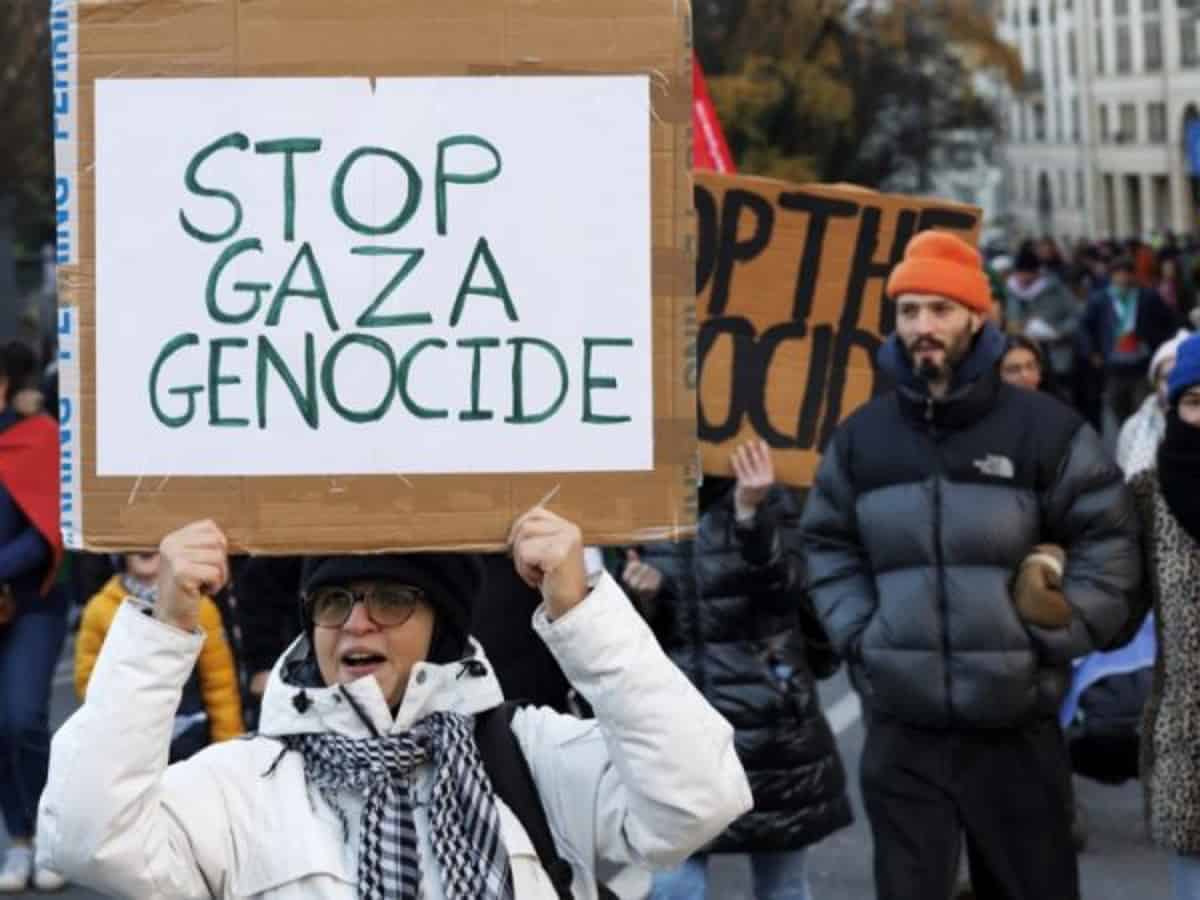
By Mahevish Fatima
The landmark case that South Africa filed in the ICJ accusing Israel of breaching the 1948 Convention on the Prevention and Punishment of the Crime of Genocide (the “Genocide Convention”) is being curiously observed across the world.
After the loss of over 24,000 Palestinian lives, of which more than 10,000 are children, Palestinians and pro-Palestine campaigners around the world hope for a verdict from the ICJ that will end Israel’s ongoing aggression since October 7.
The arguments
In its petition, South Africa alleges that Israel has killed a large number of Palestinians; inflicted “conditions of life intended to bring about [Palestinians’] destruction as a group”; caused mass displacement and destruction of homes; deprived Palestinians of access to adequate food, water, shelter, medical care, and sanitation; and imposed measures that obstruct Palestinians from being able to give birth. According to reports the number of miscarriages has surged by over 300% in Gaza since the war broke out.
South Africa’s counsel places these allegations within the context of Israel’s telecommunications blackouts, restriction of fact-finding bodies, and killing of more than 117 journalists in Gaza since the war began.
The petition also collates widespread international outcry against Israel’s conduct in Gaza, including numerous references to Secretary General António Guterres’s Dec. 6 Article 99 letter to the United Nations Security Council calling for a humanitarian ceasefire.
Israel’s legal arguments on the other hand stated that the genocide charges leveled against it are invalid, and their primary strategy was to appeal to the court on jurisdictional and procedural matters, hoping that they could form the basis for the panel of international judges to dismiss South Africa’s case. Aware of the global audience, Israel also sought to reinforce its claims of ‘righteousness and self-defence’ in fighting the war in Gaza.
Possible course of the case
If the ICJ does rule in favour of South Africa, the provisional measures would only be temporary. Judges would later have to decide if the case could move forward to the merits phase, which would lead to a fully-fledged trial between South Africa and Israel during which the court would decide whether or not Israel committed a genocide. According to experts, it may take ICJ years to announce its verdict.
The court is expected to rule on possible emergency measures later this month, but will not rule at that time on the genocide allegations.
The ICJ’s decisions are final and without appeal. However, the court has no way to enforce them, but ignoring them could have significant international ramifications.
ICJ’s ruling of this case, if in favour of South Africa, may provide a significant relief to the people of Palestine as Israel would be required to halt its military operations. This ruling can also significantly provide a path of talks for peace in the area. On the other hand, a ruling in favour of Israel may lead to an even more intensified military operation and mounting casualties of Palestinian people.
While many countries have expressed their support for the case against Israel, Indonesia and Slovenia are saying that they will be joining proceedings that seek an advisory opinion on Israel’s control of, and policies, on the occupied Palestinian territory.
Germany backs Israel
On the other hand, Germany has said that it will intervene on behalf of Israel at the ICJ. Germany’s federal government spokesperson recently stated that accusation of genocide against Israel is ‘baseless’ and Germany intends to speak as a ‘third party’ in the main hearing before the UN’s top court.
For this case to have any repercussions against Israel’s actions, it also needs the support of Muslim countries, like the Gulf nations. As of now, these countries have supported the filing of the case but are yet to appear at the ICJ on behalf of South Africa or Palestine.
Indonesia, Slovenia press more charges
Indonesia and Slovenia are set to present new charges against Israel at the International Court of Justice (ICJ) on February 19 at The Hague, regarding the violations of Palestinian rights.
Both the countries will participate in an advisory opinion process on Israel’s control and policies over the occupied Palestinian territory. This comes after UN General Assembly (UNGA) in December 2022 requested the ICJ to issue an advisory opinion on whether Israeli policies against Palestinians violated international law.
